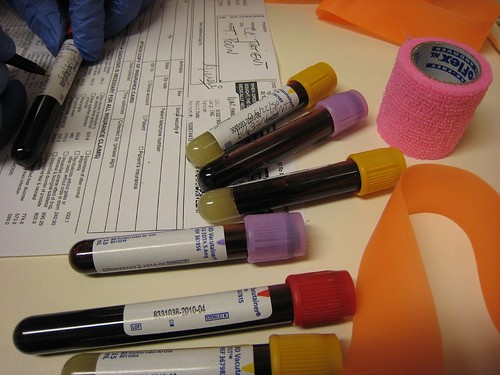Blood Test Predicts Likelihood of Imminent Death

Researchers have identified signs in a person's blood that signal when death is near, according to a newly published study.
The study's findings were released in PLOS Medicine, a journal of the Public Library of Science.
According to the study, researchers have identified the specific levels of four chemicals in human blood that serve as a reliable indicator of approaching death. These chemicals, referred to as "biomarkers" because they provide detectable physiological clues about a person's health, have been tied to fatal cases of several potentially deadly conditions including cancer, heart disease, some neurological conditions, and potentially even natural death (age-related degradation.)
According to the study, the "death biomarkers" were highlighted from a list of 106 lipids, proteins, and metabolites circulating in the blood. Researchers accomplished this by analyzing the blood of over 9000 randomly chosen subjects between the age of 18 and 101. Over five years, data on the 106 selected potential biomarkers was taken. In that same time, 508 subjects of the study died of various causes. Researcher compared biomarker levels in the living verses those who died, considering medical conditions and age. They were looking for biomarkers with levels common among the dead but uncommon among the living.
The four biomarkers mentioned above, being alpha-1-acid glycoprotein, albumin, low-density lipoprotein, and citrate, stood out compared to all 106 others, with remarkably similar levels among the patients who died but highly varied levels among the patients still living. Based on this data, researcher created an index for levels of these biomarkers. Disturbingly, researchers concluded that individuals whose four biomarkers were within the top 20 percent of the index are 19 times more likely to die in the next five years than individuals who test within the bottom 20 percent of the index.
Researchers one day hope to use the detection of these chemical levels to help prevent or delay impending death, but for now it simply remains a subject of research.
The study was published in PLOS Medicine on February 25.
Feb 28, 2014 03:00 PM EST





